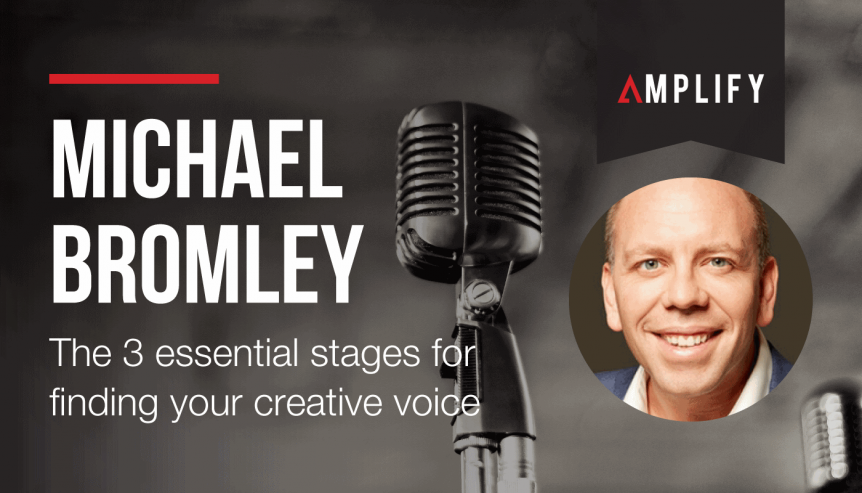This article was inspired by Ronsley Vaz’s latest interview with Michael Bromley on Should I Start A Podcast.
As any creative soul will know, one of the hardest things about actually creating something is finding the right voice to project it in. And regardless of your artistic medium – whether it’s clay, paint, movement, vocal or the written word – it’s a safe bet that you’ll come up against this kind of struggle at some point.
But if you take the time to discover and develop your own individual voice before you begin, you’ll remove a lot of that struggle. So, in the spirit of saving your sanity, here are the three stages to finding your creative voice:
#1 – The Investigation Stage
This stage is fun. You’re full of motivation, knowing deep within your bones once you get your project moving you’re going to be the next Jackson Pollock/J.K Rowling/Ronsley Vaz. The seed to your inspiration has well and truly been planted, and you’re gearing up to execute.
But instead of being too gung-ho and diving in before you realise you can’t swim, take a while to build your foundations by investigating and identifying the skills you’ll need to grow in to pull this off properly. This stage helps you narrow your focus down a bit more, and provides you with potential ‘mentors’ to put you on the right path.
Questions to ask yourself:
- Do I have the fundamental skills needed in order to do this? Am I technologically-savvy enough? How are my creative writing skills? Have I ever held a paintbrush?
- How can I gain those skills? Are there online courses and/or workshops I could undertake?
- Who are the most renowned individuals in this field? What can I learn from them?
#2 – The Imitation Stage
Now you’ve not only identified any areas where you can improve, you’ve also given yourself a great jumping-off point. As Stephen King puts it, ‘Imitation precedes creation’, and while it might sound counterintuitive to essentially imitate the voices of the greats, it’s also the best way to find your own voice. By mimicking those whose styles you adore and align yourself with most, you’ll eventually be able to see areas where you can interject your own uniqueness. This stage helps you refine your taste and style, and enables you to see what works best and what doesn’t.
NB: I know we mention imitation here, but there’s a difference between gaining inspiration from another and straight-up plagiarising their work, even in the name of creativity. Avoid plagiarism at all costs – it’s always obvious, and is a very hard reputation to shake.
Questions to ask yourself:
- What sort of voice would I most like to emulate? Whose style and tone is best aligned with my goals and who I feel I am?
- Does this tone suit me? Is it easy for me to mimic, or do I struggle with ‘putting myself in their shoes’?
- What can I begin doing in order to gain that distinction between their voice and my voice?
#3 – The Distinction Stage
You’ll quickly grow tired of imitating someone else’s voice and feel ready to break free. By now, you should feel as though you’ve got a basic command of the skills you’ll need, as well as insight into the kind of voice you want to project out there.
However, this is often where the fear of rejection begins. You might feel like something is great once you’ve applied your uniqueness to it, but the critic in your head will try to dissuade you. Intuition is key to overcoming this, so listen to your gut and stay true to your creative convictions.
Questions to ask yourself:
- Am I willing to leave my comfort zone and take risks in order to make progress?
- Will I seek out and pursue my own opportunities?
- Is the world ready for the greatest I am about to bestow on them? (Because sometimes, a little positive self-talk goes a long way.)
Author: Ronsley Vaz
Ronsley is the founder & chief day dreamer at AMPLIFY. He is an author, speaker & serial entrepreneur.
He has a Masters’ degree in Software Engineering and an MBA in Psychology and Leadership. He is known as the creator of We Are Podcast – the first Podcasting Conference in the Southern Hemisphere, and the host of The Bond Appetit Podcast and Should I Start a Podcast. He has an audience of over 3 million in 133 countries.


